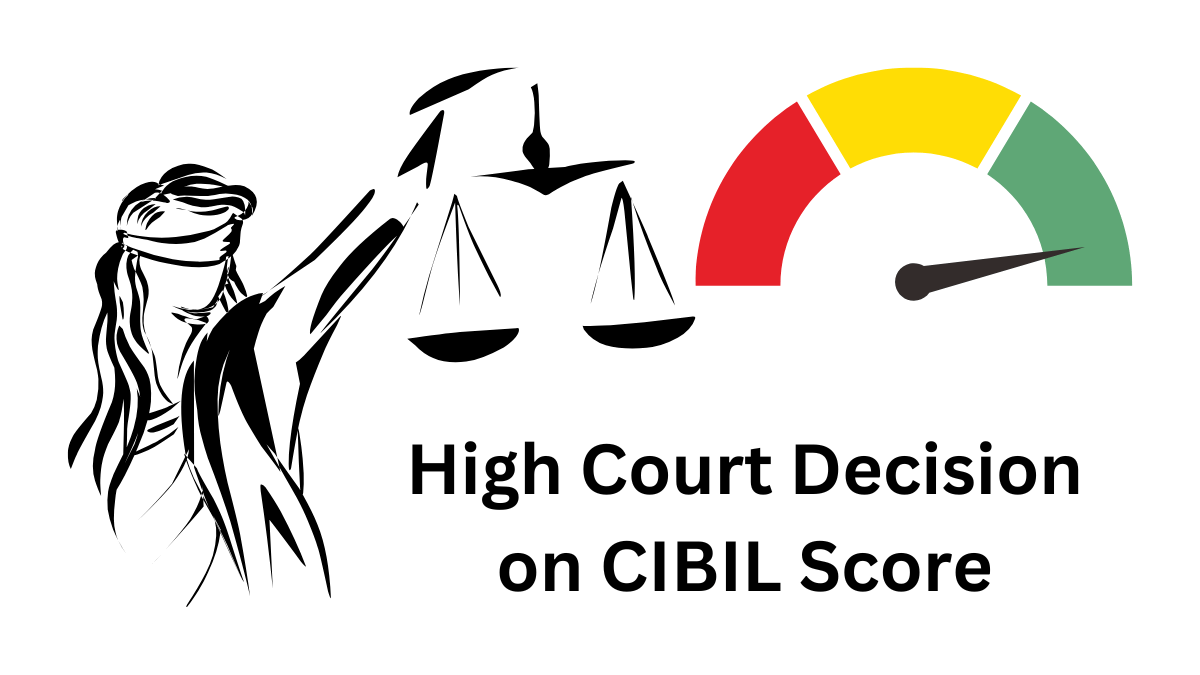Financial constraints often lead us to seek loans from banks or financial institutions. However, these institutions evaluate your CIBIL score before approving loans. A CIBIL score reflects your creditworthiness based on how promptly you’ve repaid loans in the past. Managed by the Credit Information Bureau (India) Limited, this score ranges between 300 and 900, with 700+ considered favorable for easy loan approvals. However, what happens when a low CIBIL score becomes a barrier for essential financial needs, like education or medical emergencies? Here’s how a recent High Court ruling addresses this issue.
Contents
What Is a CIBIL Score?
A CIBIL score is a three-digit number calculated based on an individual’s credit history. It determines the likelihood of timely loan repayment. Scores are categorized as follows:
- 300-500: Poor; difficult to secure loans.
- 700-900: Good; loans are easily approved.
This score impacts your eligibility for loans, including personal, home, and educational loans. For students and individuals in urgent need, a low score can become a significant hurdle.
The High Court’s Landmark Decision
The Kerala High Court recently criticized banks for denying loans solely based on poor CIBIL scores. Justice P.V. Kunhikrishnan ruled that refusing educational loans to students with low credit scores is unjust. Here’s why this decision is pivotal:
- Students’ Financial Background:
Most students lack a steady income and rely on educational loans to build their future. Denying such loans based on CIBIL scores disregards their potential to repay after completing their education. - Banks Must Prioritize Humanity:
The court emphasized that banks should consider the human aspect, especially for students in dire need of financial assistance for education. - Case Example:
A student petitioned the Kerala High Court after being denied an educational loan due to a poor CIBIL score caused by additional charges on a previous loan. The court directed the bank to approve the loan, highlighting the importance of future repayment capability over past credit history.
Key Takeaways from the High Court Ruling
- Student Loans Should Not Depend Solely on CIBIL Scores:
Banks must evaluate a student’s ability to repay loans post-graduation rather than their current credit history. - Educational Loans as a Fundamental Right:
The court acknowledged that denying educational loans deprives students of opportunities to build a better future. - Banks Face Strict Directives:
Justice Kunhikrishnan warned banks against arbitrary rejections of educational loans, indicating potential penalties for non-compliance.
How to Maintain a Good CIBIL Score
To avoid challenges when applying for loans, maintaining a good CIBIL score is crucial. Here are some tips:
- Pay EMIs and Credit Card Bills on Time: Timely payments are the most significant factor influencing your score.
- Limit Credit Utilization: Avoid maxing out your credit cards frequently.
- Diversify Credit Mix: A healthy balance of secured (home loans) and unsecured loans (personal loans) improves your score.
- Monitor Your Credit Report: Regularly check your CIBIL report for discrepancies and get them corrected.
- Avoid Frequent Loan Applications: Multiple credit inquiries can negatively impact your score.
For a step-by-step guide on checking your CIBIL score via WhatsApp, visit this link.
What Does This Mean for Borrowers?
The High Court’s decision marks a significant shift in how banks handle loan applications. It encourages a more compassionate approach, ensuring that individuals with genuine financial needs—like students pursuing education—aren’t penalized for past financial struggles.
For borrowers with low CIBIL scores, this ruling provides hope. However, maintaining a good credit score remains crucial for easier access to financial assistance in the future.
Conclusion
The Kerala High Court’s decision to prioritize future repayment potential over past credit history sets a benchmark for financial institutions. It reflects the judiciary’s recognition of education as a fundamental right and ensures that financial barriers don’t hinder students’ futures.
For more tips on maintaining a healthy CIBIL score, read our detailed guide on how to keep your credit score high.
